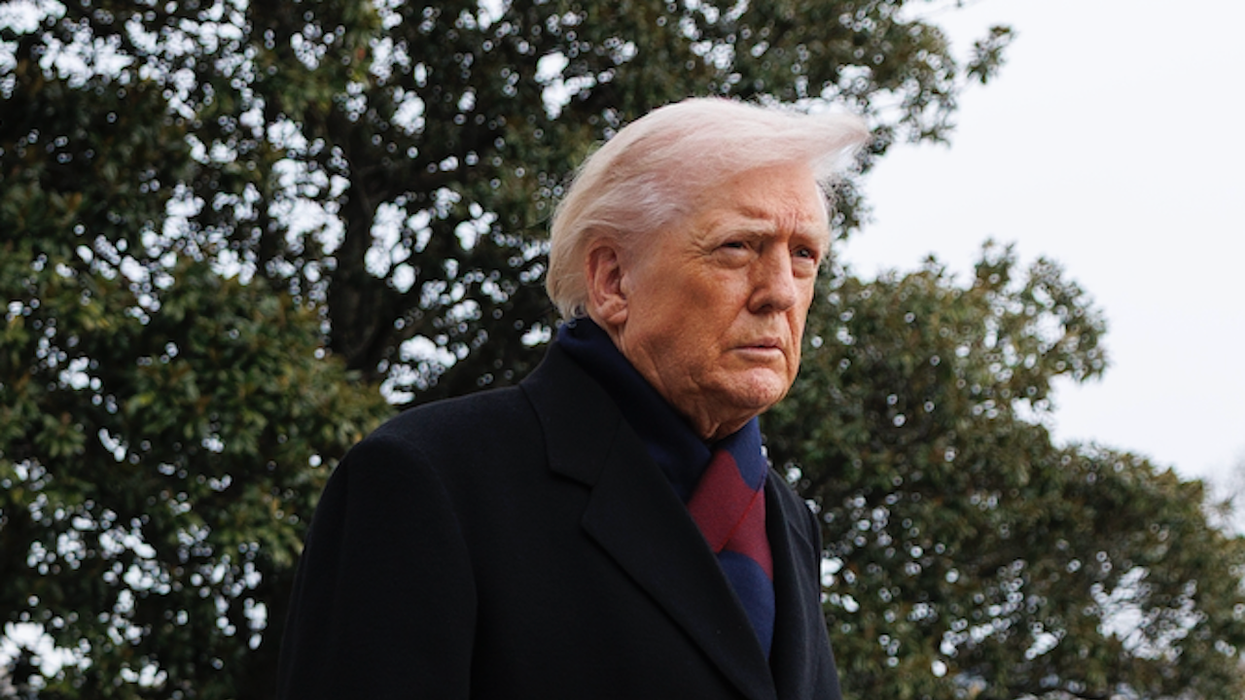
© 2025 Blaze Media LLC. All rights reserved.
House Passes Unpopular $1 Trillion Spending Bill After Hours of Wrangling for Votes
December 11, 2014
The House narrowly passed a controversial $1 trillion spending bill late Thursday, over the objection of dozens of "no" votes from both Republicans and Democrats.
The bill passed after the House took a break for nearly seven hours to scramble for the needed votes. Members returned at around 9 p.m. and barely passed it in a 219-206 vote.
The vote saw 67 Republicans vote against the bill, but that was mostly countered by the 57 Democrats who voted for it.
 Despite a day filled with uncertainty, House Speaker John Boehner (R-Ohio) successfully moved a huge spending bill that many thought would fail.
Despite a day filled with uncertainty, House Speaker John Boehner (R-Ohio) successfully moved a huge spending bill that many thought would fail.
The vote was a victory for House Speaker John Boehner (R-Ohio) and President Barack Obama, who both pushed for votes during the seven-hour break. Vice President Joe Biden and other House Minority Whip Steny Hoyer (D-Md.) also pushed for its passage.
It's a defeat for the strange pairing of members from both parties who managed to delay it, but ultimately failed to bring it down. House Minority Leader Nancy Pelosi (D-Calif.) and Sen. Elizabeth Warren (D-Mass.) opposed the bill, along with Republicans like Rep. Steve King (Iowa), Rep. Louie Gohmert (Texas) and Sen. Ted Cruz (Texas).
Those Republicans wanted tougher language on immigration, while Democrats who opposed the bill couldn't support language easing financial regulations and allowing political parties to raise more money for presidential nominating conventions.
Earlier in the day, Boehner predicted the House would pass it, even as he acknowledged that the process was terrible. Many members in both parties were angry that they were given just two days to read a huge bill with countless policy implications.
But Boehner said the failure of the Senate to pass any spending bills this year was forcing Congress to make last-minute compromises, including in some areas that were controversial for many.
"There's not one of you in this room that doesn't understand that this is exactly the way I don't want to do business," Boehner said. "But when the Senate does nothing, they put us in this box and here we are."
Passage of the long-term bill was in doubt at the start of the day, when a procedural vote was needed to bring it to the floor. That vote almost failed, but finally passed 214-212 only after GOP convinced a few Republicans to switch their votes at the end.
After a debate, the House suddenly went into recess at about 2:10 p.m., a sign the votes just weren't there.
The biggest substantive problem for Republicans was the lack of language blocking President Barack Obama's executive action on immigration. That opposition was expected to prompt 40 or 50 Republicans to vote against it — in the end, 67 Republicans opposed it.
GOP leaders knew they would need Democratic votes to make up for this loss, but Democrats had their own objections.
Chief among them was such as language changing the Dodd-Frank financial reform law that currently prevents banks from trading derivatives that are insured by the Federal Deposit Insurance Commission. That ban was imposed to avoid future taxpayer bailouts of these banks.
Democrats also opposed language allowing both parties to raise more private money for presidential nominating conventions. Several other Democrats raised that as a concern, including Sen. Warren.
 House Minority Leader Nancy Pelosi (D-Calif.) encouraged Democrats not to support the legislation, and tried to hold out against efforts by President Barack Obama to convince Democrats to switch.
House Minority Leader Nancy Pelosi (D-Calif.) encouraged Democrats not to support the legislation, and tried to hold out against efforts by President Barack Obama to convince Democrats to switch.
Image: BRENDAN SMIALOWSKI/AFP/Getty Images
Democratic leaders said they would not pressure members to vote against the legislation. But Pelosi made her preference clear by speaking against it, and accusing Republicans of blackmailing members into accepting the Dodd-Frank language in return for a bill that funds the government for the rest of 2015.
"Here we are in the House, being blackmailed — being blackmailed — to vote for an appropriations bill," she said on the House floor.
Pelosi was undercut by the White House, which released a statement in the middle of the day saying it supported the legislation, despite its own objections to the bill. That statement angered Pelosi, who questioned why the White House would accept the language at all.
"I'm enormously disappointed that the White House feels that the only way they can get a bill is to go along with this, and that would be the only reason, I think, they would say they would sign such a bill," she said.
Boehner said some Democrats had supported the Dodd-Frank tweak before, and that the entire bill was negotiated with members of both parties from the House and the Senate. A House committee easily approved language last year with just a few Democratic opponents, which led some to charge Warren with demagoguing the issue.
But when the House went on recess shortly after 2 p.m., Pelosi said the delay showed Democrats might have some leverage, and called on her members not to cave in.
Democrats met at 6 p.m. to discuss their views of the bill, and were met by White House Chief of Staff Denis McDonough, who argued that Democrats should support the measure. The White House theory seemed to be that a full-year spending bill now, with Democratic input, would be better than anything they could get next year when Republicans run the House and Senate.
The meeting seemed to convince just enough Democrats to support it. Retiring Rep. Jim Moran (D-Va.) noted that the bill reflects Democratic input, something that may not happen next year.
"This is a good bill," he said on the floor just before the vote. "This reflects our priorities."
Want to leave a tip?
We answer to you. Help keep our content free of advertisers and big tech censorship by leaving a tip today.
Want to join the conversation?
Already a subscriber?
more stories
Sign up for the Blaze newsletter
By signing up, you agree to our Privacy Policy and Terms of Use, and agree to receive content that may sometimes include advertisements. You may opt out at any time.
Related Content
© 2025 Blaze Media LLC. All rights reserved.
Get the stories that matter most delivered directly to your inbox.
By signing up, you agree to our Privacy Policy and Terms of Use, and agree to receive content that may sometimes include advertisements. You may opt out at any time.






